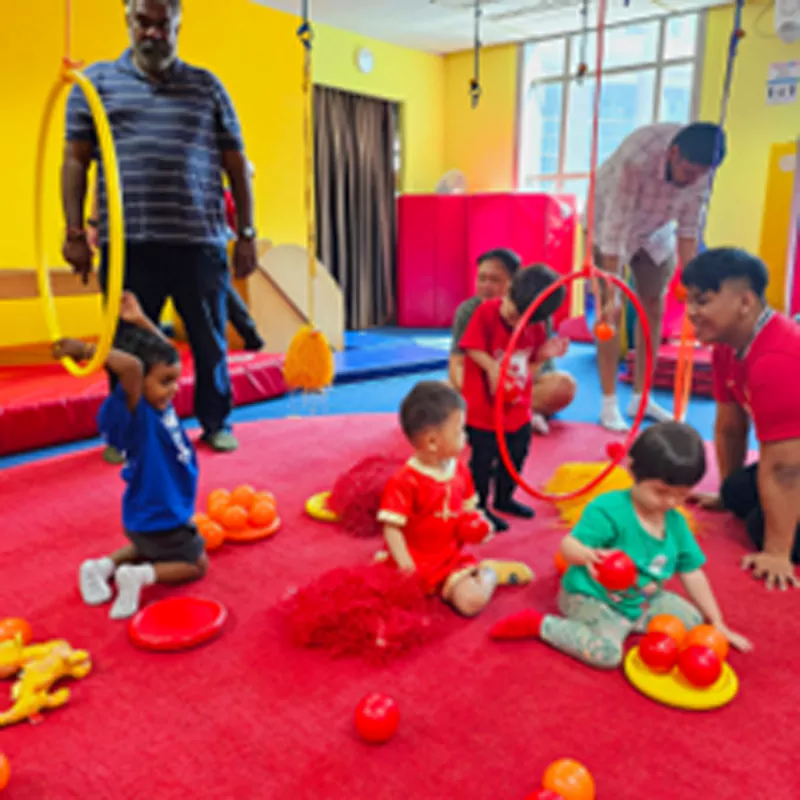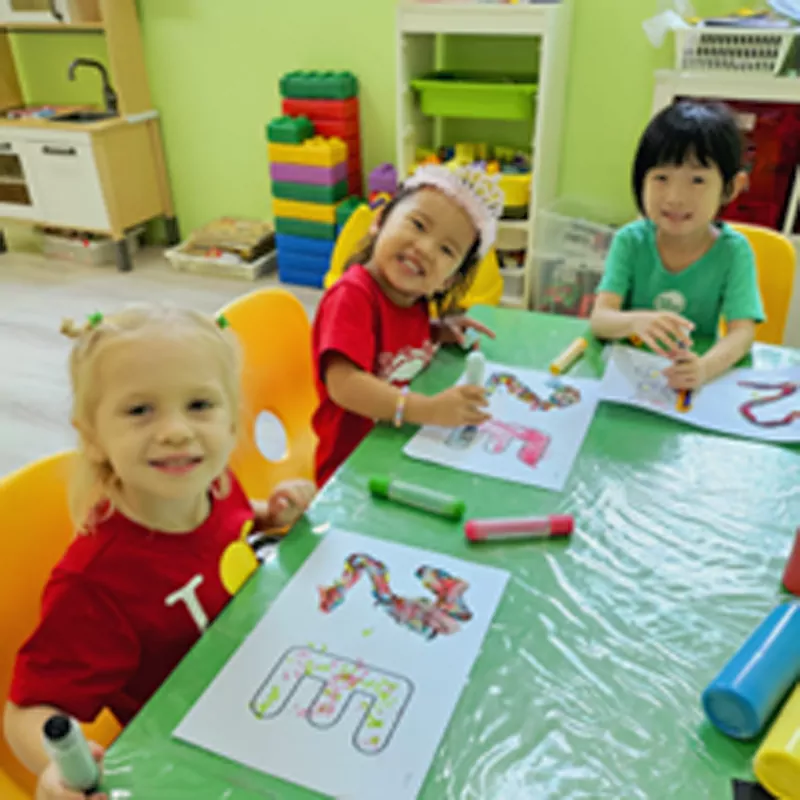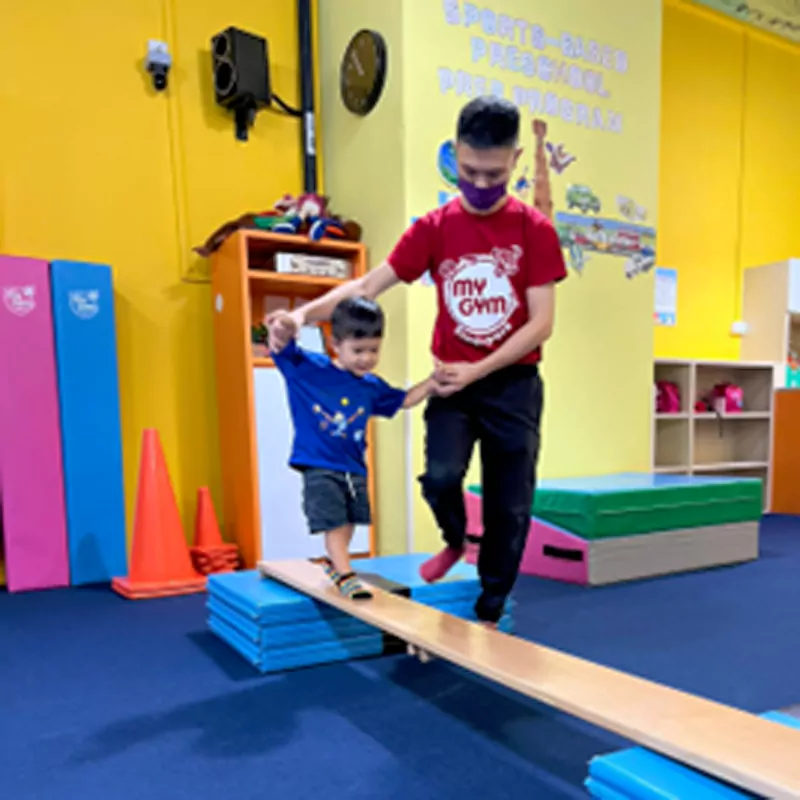How To Help Your Child Become A Better Social Being
The process of raising children extends far beyond the immediate responsibilities of caregiving and ensuring their health. It involves parents helping their children cultivate the qualities and values that will shape them into responsible, compassionate, and resilient individuals.
This is why every parent aims to help their child grow up to become a responsible human being, emphasizing the importance of not just education but also fostering all-round social development in children that encompasses emotional intelligence, instilling moral values, promoting social skills, and encouraging a growth mindset.
Shaping well-rounded individuals
Emotional intelligence, encompassing self-awareness, self-regulation, empathy, interpersonal skills, and motivation, serves as a foundation for building healthy relationships, navigating social situations, and effectively managing emotions. This means that developing emotional intelligence in your child will be a crucial aspect that will ensure her overall well-being and future success.
Encourage emotional expression: Provide a safe and open environment at home for your child to express her emotions freely. Always acknowledge and validate her feelings, teaching her that both positive and negative emotions are a natural part of being human. Encouraging the use of the right words to describe her emotions accurately will help build a vocabulary to express different states of her inner emotional being.
Model emotional regulation: Children learn by observing and imitating the behaviour of adults. This is why it makes sense to display healthy emotional expression when in the presence of children so that these become easy examples to follow. Model effective coping mechanisms for your child to follow when upset, such as taking deep breaths, counting to ten, or engaging in activities that bring a sense of calm during moments of stress.
Identifying emotions: Help children recognize and label their emotions. Use books, games, or visual aids to introduce different emotions, teaching your child to associate them with facial expressions and body language. This process enables children to better understand their feelings and develop empathy for the emotions of others.
Promote empathy: Parents can teach empathy to children by encouraging them to consider the perspectives and feelings of others. Engage in discussions about how certain actions may impact someone emotionally. Encourage your child to ask questions and actively listen to the experiences of her peers, promoting a deeper understanding of emotions experienced by those around her.
Cultivate problem-solving skills: Guide your child in developing effective problem-solving skills when she is faced with challenges. Teach her to analyze situations, identify potential solutions, and consider the emotional impact of her choices. This process will enhance your child’s ability to navigate conflicts and make decisions that consider her own well-being and that of others.
Engage in co-operative activities: Collaborative activities provide opportunities for your child to practice interpersonal skills, cooperation, and teamwork. Whether through group projects, team sports, or cooperative games, these activities promote social awareness, improve communication, and the development of positive relationships.
Set realistic expectations: Help your child manage expectations and cope with disappointment. Discuss that it’s okay not to excel at everything and that making mistakes is a natural part of learning. This understanding fosters resilience and a growth mindset, reinforcing the idea that failures are stepping stones to success and growth.
Promote mindfulness: Introduce mindfulness and relaxation techniques to help your child become more aware of her emotions and learn how she can regulate them. Simple practices, such as deep breathing exercises or short moments of meditation, can aid in promoting emotional balance and self-awareness.
By implementing these simple strategies in your child’s daily routines, you can make a positive contribution to the holistic development of emotional intelligence. This investment in emotional well-being will equip your child with the skills necessary for building enduring relationships, coping with life’s challenges, and thriving in various social situations your child will encounter in her life.
Helping build a moral compass

Building a moral compass in your child is a crucial aspect of character development, as this will help her navigate the complexities of life with integrity, empathy, and a strong sense of right and wrong. Teaching your child the importance of honesty, kindness, and respect for others also establishes a moral basis that extends beyond individual actions.
Building a moral compass in your child is a work-in-progress process that requires consistent guidance, constant reinforcement, and positive role modelling. By encouraging your child to incorporate these strategies into everyday interactions and activities, you as parents can contribute to the cultivation of an ethical and compassionate individual who will navigate the world with a well-developed sense of morality.
Modelling moral behaviour: Children observe and learn from the actions of adults around them. So be a role model for your child, and embody the values you seek to instil in her. Engaging regularly in ethical discussions about integrity, empathy, and responsibility and sharing moral stories will go a long way in contributing to the reinforcement of strong moral values in your child.
Communicating freely: Create an environment in which your child will feel comfortable expressing her thoughts and concerns freely and without fear. Actively listening to her perspectives and providing guidance when discussing moral dilemmas or challenging situations is a critical process that help your child to identify and respond effectively.
Integrating real values: Articulate and reinforce the values that are important to you and your family. Stand for something truly noble. Start a dialogue involving your child, discuss the reasons behind the values and how she can contribute to creating a positive and harmonious environment at home. Consistency in promoting these values will help your child internalize the values as guiding principles.
Set clear-cut expectations: Establish clear expectations for how your child should behave in different situations and consistently reinforce the importance of ethical conduct. Discuss the consequences of actions, both positive and negative, and emphasize the impact of choices she makes on herself and those around her. This will help your child understand the need for accountability associated with her behaviour.
Discuss moral issues: Engage your child in discussions about moral problems appropriate for her age. Create hypothetical scenarios that require your child to think critically about right and wrong, encouraging her to consider the consequences of making choices. This helps your child to develop her moral reasoning skills.
On being responsible: Encourage your child to have a sense of responsibility towards others and the community. When your child is involved in age-appropriate volunteer activities, they can inculcate a habit of getting involved in community service projects. Exposure to hands-on experience will help her understand the concept of contributing positively to the well-being of others.
Foster critical thinking skills: By encouraging your child to question and evaluate information, you will be teaching her to consider different perspectives and think independently about moral issues. This empowers your child to make informed and ethical decisions.
Reinforcing positive traits: Regularly emphasize and praise positive character traits in your child. Recognize and reward instances when she demonstrates qualities such as honesty, integrity, generosity, and empathy. Reinforcing these positive traits regularly will create and establish a strong moral compass for your child to steer by throughout her life.
Developing social skills holistically

Whether it involves forging friendships, establishing connections with others, or cultivating healthy relationships, social skills serve as indispensable tools for children to navigate the diverse dimensions of life.
The capacity to interact effectively with others and exhibit appropriate behaviour in various social scenarios is not an inherent trait in children; rather, it is a skill that must be imparted and acquired over time. As a parent, your pivotal role in shaping your child’s social skills is undeniable. Your influence will play a crucial part in moulding them into well-adjusted individuals capable of thriving in any social environment.
Recognizing that the development of social skills is a gradual and ongoing process, it is essential to provide a supportive and enriching environment for your child. Encourage opportunities for social interaction, such as playdates, group activities, and team sports, as these experiences contribute significantly to the acquisition of crucial social skills.
As your child progresses through different stages of development, it becomes important to adapt your guidance to suit her evolving social needs. Be attuned to your child’s experiences, offer constructive feedback, and guide them in navigating complex social situations. Creating an open and non-judgmental space for communication ensures that your child feels supported and encouraged in her social development journey.
Holistic development of social skills in children is a dynamic and ongoing process that requires active involvement from parents. By helping your child cultivate these skills, you contribute significantly to your child’s ability to form meaningful connections, adapt to diverse social settings, and grow up being able to face and thrive even in the toughest of social situations.
Encourage Communication Skills: One of the key components of nurturing social skills in a child is promoting effective communication. Assist your child in developing her communication abilities by enabling her to speak and express her thoughts openly, whether through words or actions.
Teach appropriate ways to articulate her thoughts and ideas, and demonstrate this behaviour yourself to illustrate what is expected from her. This not only enhances her ability to interact with others but also facilitates better understanding between her and those she is interacting with.
Foster the art of sharing: Sharing is a fundamental social skill that fosters empathy and consideration in children. It instils the importance of sharing resources and cooperating with others.
Encourage your child to practice sharing by urging her to share toys with other children or offering food to those in need. Praise her efforts to reinforce the significance of this social skill.
Sharing marks a crucial stage in a child’s social development, contributing to her ability to engage positively with others.
Help cultivate empathy: Empathy is the capacity to understand and share others’ feelings and is a vital social skill for building strong relationships. Guide your child in developing empathy by teaching her to see situations from another person’s perspective and encourage her to express what she is feeling honestly and sincerely.
Activities like reading storybooks provide excellent opportunities to foster empathy. While reading, pause at various points to discuss characters’ emotions, prompting your child to consider how she might feel when in similar situations.
Preparing for conflict resolution: Conflicts are inevitable, and children need to learn how to navigate and resolve disputes peacefully. Equipping them with conflict resolution skills such as active listening, compromise, and assertiveness will be very helpful and is amongst the smartest ways a parent can help.
These skills not only help but also contribute to the development of empathy and improved communication. Drawing inspiration from your own conflict resolution instances will set a positive example by demonstrating real-time healthy conflict resolution events you may have handled earlier.
Helping form friendships: Encourage your child to develop her social skills by fostering friendships. Provide opportunities for engagement, such as signing her up for activities or clubs that align with your child’s interests.
Enrolling your child in after-school programs or joining summer camps that cater to her passions, be it sports or music, can set your child up for social interactions that can happen at a deeper level and create friendships that can last for a lifetime!
Stimulate curiosity through questions: Asking questions is an effective way to enhance social skills. It effectively demonstrates a willingness to engage and your desire to learn from others.
It will be worth the effort when you encourage your child to improve her communication skills by prompting and teaching her how to ask the right questions about others. This practice boosts your child’s confidence levels in social interactions with strangers.
Reinforcing positive behaviour: Provide positive reinforcement when your child exhibits positive social behaviour, such as interacting harmoniously or resolving conflicts calmly. Praise their efforts to establish clear expectations and motivate them to consistently engage in positive social interactions.
With your support and guidance, your child can develop the social skills necessary for success, fostering their growth into well-adjusted individuals capable of navigating life’s challenges with confidence.
Promoting a growth mindset

Building Child Confidence growth mindset is not a perspective. It’s a transformative approach that embraces challenges, considers effort as a pathway to mastery, and perceives failures as stepping stones toward learning and improvement. It also comes in handy in building your child’s confidence.
Instilling a growth mindset in children is critical and needs to be taken seriously by parents of young children. Simply because it serves as a foundation for building confidence, resilience and cultivating a genuine passion for learning.
Instilling a growth mindset in children is critical and needs to be taken seriously by parents of young children. Simply because it serves as a foundation for building confidence, resilience and cultivating a genuine passion for learning.
Both parents and educators play crucial roles in nurturing a growth mindset, fostering an environment that encourages the continuous pursuit of knowledge and personal growth.
In essence, fostering a growth mindset empowers your child to confront challenges with confidence. It equips her with the resilience to weather setbacks, extract lessons from failures, and perpetually strive for improvement.
By embracing challenges and learning from failure, your child develops a dynamic approach to life, turning into an individual who not only faces adversity with resilience but also approaches every endeavour with an unwavering commitment to continuous learning and personal development.
Instilling a growth mindset: It’s imperative to shift your focus from innate abilities to the value of effort. Praising a child’s dedication and hard work sends a powerful signal that success is a result of persistent effort rather than a predetermined capability. This approach not only boosts a child’s confidence but also instils a belief in her capacity to overcome challenges.
Constructive feedback: This aspect is another cornerstone in the cultivation of a growth mindset. By providing genuine feedback that emphasizes improvement, you as a parent will be empowering your child to see setbacks as opportunities for growth.
This constructive intervention will teach your child to approach challenges with a positive mindset, fostering resilience and adaptability in the face of difficulties.
Developing a positive attitude toward challenges: Rather than fearing difficulties, your child will be taught to embrace them as opportunities for exploration and learning. By emphasizing the journey of learning over the final destination, your child will develop a profound sense of curiosity and a willingness to delve into new ideas without the fear of making mistakes.
Mistakes are for learning from them: Teaching your child that mistakes are an inherent part of the learning process is a crucial component of instilling resilience and perseverance. You can reframe mistakes as valuable experiences that contribute to personal growth.
This shift in perspective empowers your child to view setbacks not as failures but as stepping stones toward improvement. It fosters a mindset where setbacks are analyzed, lessons are extracted, and a commitment to continuous improvement is ingrained.
How My Gym helps
One effective way to help young children grow up to become positive human beings is by involving them in physical activities that involve the development of communication skills and all-round development.
By motivating and involving children to perform dynamic physical movements individually and in groups, you create a safe setting where children can learn to concentrate and be attentive and focused. Learn to listen to instructions, and pay attention to what a teacher is telling them to do.
By doing this day in and day out, children acquire critical listening skills that play a big role in acquiring critical social and communication skills, enabling them to navigate complex social situations and nurture emotional development to lead healthier lives.
My Gym’s enrichment programs augment the growth of neural networks in the brain and lay a firm foundation for personal, academic and future growth by involving children in age-appropriate, structured and unstructured play designed to develop language, listening, thinking and problem-solving skills.
Please visit any of My Gym centres to learn more about how it can support “whole-child development”. Choose a day when you are relatively free and come over with your child in tow. Your child could be an infant (as young as 6 months), a toddler or a preschooler, age is not a bar to learn how your child can pick up skills just by looking, listening and imitating. without missing out on anything!
Please note: My Gym classrooms are thoroughly sanitized every day — the tables, the chairs, the children’s activity stations and everything else the child might touch is made safe and clean. Whenever required, children are encouraged to wear a mask, wash their hands frequently, and practice social distancing as well.



